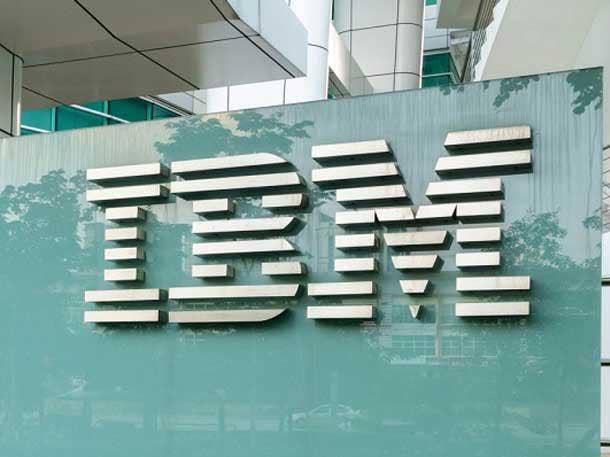IBM-AWS Partnership To Boost Cloud, Software, Red Hat Wins: Kate Woolley
‘With IBM, Red Hat, AWS: partners are able to take more value to their clients by that collaboration,’ IBM’s channel chief Kate Woolley tells CRN.

IBM’s new strategic partnership with Amazon Web Services is “critical” for partners who want to boost sales and customer wins as more and more businesses leverage the AWS Marketplace.
IBM’s worldwide channel chief Kate Woolley said IBM partners can now better leverage their customers’ cloud commitment spending, improve their co-selling abilities and leverage AWS’ vast ecosystem thanks to the new IBM-AWS partnership formed this year.
“With the AWS Marketplace, our resell partners are able to take their clients committed spend with AWS against the IBM products that are with the AWS Marketplace,” said Woolley in an interview with CRN.
“Historically, where our partners may have come up against, ‘We have this committed spend, and we’re not really sure how to bring all of these things together?’ Our resale partners can now use that committed spend through the AWS Marketplace with the IBM products,” she said.
[Related: AWS’ Ruba Borno On IBM, Cisco And AWS Marketplace Growth]
IBM-Red Hat-AWS On AWS Marketplace
Woolley, general manager of IBM’s Ecosystem, said partners also have a huge opportunity to sell holistic IBM, Red Hat and AWS solutions more easily.
“With IBM, Red Hat, AWS: partners are able to take more value to their clients by that collaboration,” she said.
“We have declared our ecosystem as one of our three strategic priorities and the AWS partnership is a critical piece of that as we think about: reaching new clients, adding more value to our existing clients, and continuing to add value for our partners as well,” said IBM’s partner ecosystem leader.
At AWS re:Invent 2022, IBM and Red Hat injected new products into the AWS Marketplace that partners can now sell.
AWS And IBM Partnership
In May, IBM and AWS formed a strategic collaboration agreement to eventually make available dozens of IBM’s bestselling software products on AWS, including IBM API Connect, IBM Db2, IBM Maximo Application Suite, IBM Security Verify, and IBM Watson Orchestrate.
At AWS re:Invent last week, IBM added IBM Envizi ESG Suite, IBM Planning Analytics with Watson, IBM Content Services and IBM App Connect Enterprise running as-a-service on AWS that both IBM and AWS partners can sell on the AWS Marketplace.
The offerings are also available to independent software vendors (ISVs) who for the first time can now obtain IBM software from the AWS Marketplace with the same benefits they have always received as IBM partners.
“As we think about where we want to meet our clients and where we’re going to add the most value to them, we want to really lean into this AWS relationship,” said Woolley.
In an interview with CRN, IBM’s channel chief dives deep into the strategy and benefits of the new IBM and AWS partnership.

What is IBM’s strategy on the AWS Marketplace?
With the AWS Marketplace, our resell partners are able to take their clients’ committed spend with AWS against the IBM products that are with the AWS Marketplace.
Historically, where our partners may have come up against, ‘We have this committed spend, and we’re not really sure how to bring all of these things together?’
Our resale partners can now use that committed spend through the AWS Marketplace with the IBM products. So that becomes another way in which they can go to market.
So they actually really love it because they use it in other areas of their business. It makes it more seamless for them to sell the IBM portfolio.
We’re excited about the partnership. As a company, we are all-in on the ecosystem.
We have declared our ecosystem as one of our three strategic priorities and the AWS partnership is a critical piece of that as we think about: reaching new clients, adding more value to our existing clients, and continuing to add value for our partners as well.
There’s no better time to be an IBM partner and that is, in part, because of these type of relationships and the AWS partnership.
How important is IBM’s partnership with AWS and what are the opportunities for partners right now?
The client is at the center of everything that we do—that’s the premise of the relationship.
Because as we think about how we meet our clients where they’re at, if you take [our banking customer] Inter, for example—big relationship with IBM, big relationship with AWS—but what we were able to do with IBM and AWS going together to them is so much more.
So that was all about meeting Inter where they were at. They had strong relationships with both of us, but we were able to get more done and provide more value to them doing it together.
As we think about where we want to meet our clients and where we’re going to add the most value to them, we want to really lean into this AWS relationship.
As we put more SaaS products and more software products onto the AWS Marketplace, it’s also about where our clients want to buy and where they want to consume their products.
That’s also why, as we evolved how our resellers can also use the AWS Marketplace, it’s all about meeting our clients where they want and how they want to buy. We want to continue to evolve this partnership to be around our clients and what they need.

How does the go-to-market work between AWS, IBM and channel partners?
It only makes it easier for partners to do business with us when we have a strong relationship with each other.
[AWS and IBM partner] Innovative Solutions is a great example where they had a very strong existing relationship with AWS, and now they’re reigniting their relationship with IBM. They’re also actually making investments into that relationship as well as Red Hat.
So with IBM, Red Hat, AWS: partners are able to take more value to their clients by that collaboration.
Whether it be SMBs or the enterprise or even specific verticals, is there a market you’re targeting with the channel with this AWS partnership?
As we’ve looked at the portfolio of products and how we’ve prioritized the products that we want to invest in to drive to the AWS Marketplace, it’s a lot around the automation and integration products.
It’s a lot around our data products. Then also around our security portfolio.
So as we think about it, it doesn’t exactly kind of answer the use case question, but that is where we’re seeing the most demand.
So those are what we want to get fastest onto the AWS Marketplace.

Do you think you’ll get more AWS partners to join the IBM channel? What are the growth opportunities, from a channel perspective, for IBM with this partnership?
There is the potential to bring partners from one ecosystem to the other—definitely.
I think the IBM ecosystem becomes much more attractive to some partners based on this partnership. There is some of that.
How do we actually make more connections across different types of partners? So we think about our GSI partners and the relationships they have with AWS as well as with IBM, ‘How do we make sure that we’re finding the right use cases where IBM-plus-AWS-plus-GSI—this is the space they own.’
And that’s going to only be more attractive if you become the go-to partnership or ecosystem for that use case. So I think it will drive a lot of opportunity there.
The other piece is, if I think about the different types of partners we have for the ISV community.
For us, AWS has an incredibly strong ISV community ecosystem.
As we think about doubling down on that from an IBM perspective and really doubling down on our AI portfolio and our Embeddable AI portfolio—we’ll be making available much of our embeddable AI portfolio through the AWS Marketplace so ISVs can easily build on, embed, run on, the embeddable AI portfolio and access our build program.
That will add an incredible amount of value to our ecosystem.